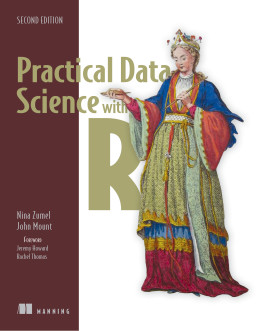pro $24.99 per month
- access to all Manning books, MEAPs, liveVideos, liveProjects, and audiobooks!
- choose one free eBook per month to keep
- exclusive 50% discount on all purchases
- renews monthly, pause or cancel renewal anytime
lite $19.99 per month
- access to all Manning books, including MEAPs!
team
5, 10 or 20 seats+ for your team - learn more

Look inside
In this liveProject, you’ll use the Julia language and clustering algorithms to analyze sales data and determine groups of products with similar demand patterns. Clustering is a well-established unsupervised learning technique that’s commonly used to discover patterns and relations in data. You’ll apply k-means and DBSCAN clustering techniques to housing sales data for a retail startup, leveraging your basic Julia skills into mastery of this machine learning task.
This project is designed for learning purposes and is not a complete, production-ready application or solution.
prerequisites
This liveProject is for experienced data scientists and data analysts who are interested in building their skills in Julia. To begin this liveProject, you will need to be familiar with:TOOLS
- Basics of Jupyter Notebook
- Basics of Julia, and intermediate experience in another high-level programming language such as Python or R
- Intermediate data preprocessing
- Basic clustering-related visualizations
- Intermediate knowledge of k-means clustering and DBSCAN clustering
- Basics of elbow method and silhouettes
 features
features
- Self-paced
- You choose the schedule and decide how much time to invest as you build your project.
- Project roadmap
- Each project is divided into several achievable steps.
- Get Help
- While within the liveProject platform, get help from fellow participants and even more help with paid sessions with our expert mentors.
- Compare with others
- For each step, compare your deliverable to the solutions by the author and other participants.
- book resources
- Get full access to select books for 90 days. Permanent access to excerpts from Manning products are also included, as well as references to other resources.
choose your plan
team
monthly
annual
$49.99
$499.99
only $41.67 per month
- five seats for your team
- access to all Manning books, MEAPs, liveVideos, liveProjects, and audiobooks!
- choose another free product every time you renew
- choose twelve free products per year
- exclusive 50% discount on all purchases
- renews monthly, pause or cancel renewal anytime
- renews annually, pause or cancel renewal anytime
-
![]() K-means and DBSCAN Clustering project for free
K-means and DBSCAN Clustering project for free

















 K-means and DBSCAN Clustering project for free
K-means and DBSCAN Clustering project for free